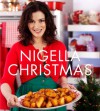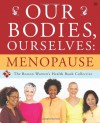Currently reading
Nigella Christmas: Food, Family, Friends, Festivities
Our Bodies, Ourselves: Menopause
The View from Lazy Point: A Natural Year in an Unnatural World
 Heart-wrenching, eye-opening and exquisitely written. Safina has been compared to many of the giants in the natural history world, but he's a better writer than the lot of 'em. In this latest book, he waxes a bit more philosophical than he's done before. His philosophy fits my belief system like a glove, and his conclusions are breathtaking. One trembles to think that we are on the razor's edge, that our window to ameliorate our planet's distress is closing rapidly- and that if we don't do it, it will be done for us with a heartless finality that will brook no arguments. As we say where I live, "The mountain don't care if you live or die."I love this passage:"So I guess what I'm trying to say is that, though I'm a secular person and a scientist, I believe that our relationship with the living world must be mainly religious. But I don't mean theological. I mean religious in the sense of reverent, revolutionary, spiritual, and inspired. Reverent because the world is unique, thus holy. Revolutionary in making a break with the drift and downdraft of outdated, maladaptive modes of thought. Spiritual in seeking attainment of a higher realm of human being. Inspired in the aspiration to connect crucial truths with wider communities. Religious in precisely this way: connection: with a sense of purpose."And this, which is purely brilliant:"If there is a God, then all things natural are miraculous. If there's no God, then all things natural are miraculous. That's quite a coincidence, and ought to give people holding different beliefs a lot to talk about. People who see the world as God's and people who sense an accident of cosmic chemistry can both perceive the sacred. Let's not be afraid to say, to explain- and, if necessary, to rage- that we hold the uniqueness of this Earth sacred, that the whole living enterprise is sacred. And that what depletes the living enterprise always proves to be, even in purely practical terms, a mistake."I'm still reeling from Safina's descriptions of hunters who still (still!) kill ducks and toss them into the bushes because they are there for the sport (sport!) of duck hunting and have no interest in duck eating. I'm still encouraged by his reports of some of the species that have come back, once we humans gave them a little space and time. And I'm very, very frightened about what my grandchildren will have and hold. I can't buy everyone a copy of this book, as much as I want to. But I can encourage you, in the strongest possible terms, to read it. And soon. As Safina says in his closing passage, "Time runs short at an accelerating pace."
Heart-wrenching, eye-opening and exquisitely written. Safina has been compared to many of the giants in the natural history world, but he's a better writer than the lot of 'em. In this latest book, he waxes a bit more philosophical than he's done before. His philosophy fits my belief system like a glove, and his conclusions are breathtaking. One trembles to think that we are on the razor's edge, that our window to ameliorate our planet's distress is closing rapidly- and that if we don't do it, it will be done for us with a heartless finality that will brook no arguments. As we say where I live, "The mountain don't care if you live or die."I love this passage:"So I guess what I'm trying to say is that, though I'm a secular person and a scientist, I believe that our relationship with the living world must be mainly religious. But I don't mean theological. I mean religious in the sense of reverent, revolutionary, spiritual, and inspired. Reverent because the world is unique, thus holy. Revolutionary in making a break with the drift and downdraft of outdated, maladaptive modes of thought. Spiritual in seeking attainment of a higher realm of human being. Inspired in the aspiration to connect crucial truths with wider communities. Religious in precisely this way: connection: with a sense of purpose."And this, which is purely brilliant:"If there is a God, then all things natural are miraculous. If there's no God, then all things natural are miraculous. That's quite a coincidence, and ought to give people holding different beliefs a lot to talk about. People who see the world as God's and people who sense an accident of cosmic chemistry can both perceive the sacred. Let's not be afraid to say, to explain- and, if necessary, to rage- that we hold the uniqueness of this Earth sacred, that the whole living enterprise is sacred. And that what depletes the living enterprise always proves to be, even in purely practical terms, a mistake."I'm still reeling from Safina's descriptions of hunters who still (still!) kill ducks and toss them into the bushes because they are there for the sport (sport!) of duck hunting and have no interest in duck eating. I'm still encouraged by his reports of some of the species that have come back, once we humans gave them a little space and time. And I'm very, very frightened about what my grandchildren will have and hold. I can't buy everyone a copy of this book, as much as I want to. But I can encourage you, in the strongest possible terms, to read it. And soon. As Safina says in his closing passage, "Time runs short at an accelerating pace."





